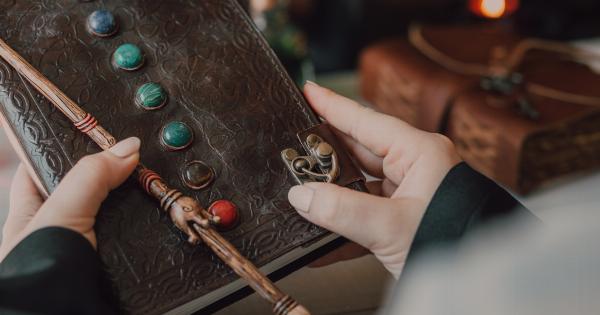Creativity is a mysterious and elusive aspect of the human mind. It’s something we all crave, but few of us understand how it works.
Some people seem to be born with a natural talent for creativity, while others struggle to come up with an original idea. But is creativity really an innate quality, or is there a hidden formula behind it?.
After years of research, psychologists and neuroscientists have started to uncover the secrets of creativity. The good news is that creativity is not a magical gift reserved for a select few. It’s a skill that can be learned and honed with practice.
In this article, we’ll explore the hidden formula for unleashing your creativity.
Understanding Creativity
Before we can dive into the formula for creativity, we need to understand what creativity is. Creativity is the ability to come up with new ideas or solutions to problems that are original, useful, or both.
It’s a complex mental process that involves divergent thinking, or the ability to generate multiple solutions to a problem. Unlike convergent thinking, which is used to find the one correct answer to a problem, divergent thinking requires us to think outside the box and come up with new and unexpected solutions.
It’s important to note that creativity is not the same as intelligence. While intelligence can help facilitate creativity, it’s not a prerequisite.
In fact, some studies have found that higher IQ scores can actually hinder creativity, as individuals with high intelligence may be more prone to overthinking and self-criticism.
The Formula for Creativity
Now that we have a basic understanding of what creativity is, let’s explore the hidden formula for unleashing it.
1. Immerse Yourself in Your Field
The first step in the formula for creativity is to immerse yourself in your field. Whether you’re a writer, artist, or scientist, you need to be deeply familiar with your subject matter.
This means reading books, attending conferences, and staying up-to-date with the latest research and trends. The more you know about your field, the more connections you can make between different ideas, and the more likely you are to come up with new and innovative solutions.
2. Find Inspiration Outside Your Field
While it’s important to be knowledgeable about your field, it’s equally important to find inspiration outside of it. This means exposing yourself to new experiences and ideas that are outside of your comfort zone.
Take a cooking class, learn a new language, or travel to a new destination. The more diverse your experiences, the more connections you can make between different ideas, and the more creative you’ll become.
3. Practice Mindfulness
Mindfulness is the practice of being fully present and engaged in the moment. It’s a skill that can help you quiet your inner critic and focus on the task at hand.
When you’re mindful, you’re less likely to get distracted by negative thoughts or fear of failure, which can inhibit creativity. Try incorporating mindfulness practices, such as meditation or deep breathing, into your daily routine.
4. Embrace Your Inner Child
Children are naturally creative because they haven’t yet learned the rules of the world. They approach problems with a sense of playfulness and curiosity, which allows them to come up with novel solutions.
As adults, we often lose touch with this sense of playfulness. To unleash your creativity, try embracing your inner child. Allow yourself to be silly, experiment with new ideas, and don’t be afraid to make mistakes.
5. Collaborate with Others
Collaboration is an essential component of creativity. Working with others can provide new perspectives and ideas that you wouldn’t have thought of alone. Find a group of like-minded individuals and start bouncing ideas off of each other.
You’ll be surprised at how much you can learn from others and how much more creative you can become.
6. Persist Through Failure
Creativity requires persistence. It’s rare that a brilliant idea comes to us fully formed. More often, it takes multiple attempts and failures to arrive at something truly innovative.
Don’t be discouraged by failure – see it as an opportunity to learn and grow. Keep persisting, and eventually, you’ll arrive at something truly creative.
7. Take Breaks
Finally, it’s important to take breaks. Creativity can be exhausting, and it’s important to take time to recharge your batteries. When you’re feeling stuck, take a walk, grab a snack, or listen to some music.
Giving your brain a chance to rest can actually help you become more creative in the long run.
The Bottom Line
Creativity may seem like a mysterious and elusive quality, but by understanding the formula behind it, we can all become more creative.
By immersing ourselves in our field, finding inspiration outside of it, practicing mindfulness, embracing our inner child, collaborating with others, persisting through failure, and taking breaks, we can unleash our creativity and come up with truly innovative solutions to problems. It’s not magic – it’s a skill that can be learned and honed with practice.






























